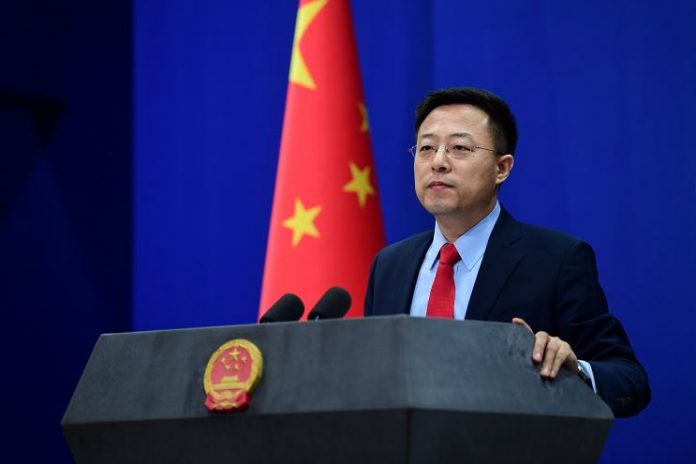BEIJING: Foreign Ministry Spokesperson Chinese Zhao Lijian Monday said that as the China-Pakistan Economic Corridor (CPEC) enters the second phase, there will be more Chinese agricultural technologies flowing into Pakistan.
“China-Pakistan cooperation in cultivating rice, corn, soybean, sugarcane and other crops has yielded fruitful results and playing an important role in promoting development of our bilateral relations and deepening friendship between our people,” he said.
Addressing the launching ceremony of Kisan Portal for the farmers under Pakistan Citizen’s Portal in Islamabad, Prime Minister Imran Khan had said that Pakistani farmers have to learn new techniques to boost productivity like China.
The PM had stated that the agriculture sector has been included under the umbrella of CPEC.
In response to PM Imran Khan remarks, Zhao Lijian said that agricultural cooperation is an integral part of CPEC an important pilot project of Belt and Road Initiative (BRI).
“China would remain in close communication with Pakistan in the work to form efficient practical cooperation mechanism to promote socio-economic development and improve people’s well being to build an even closer China-Pakistan community with shared future in the new era,” he added.
It may be mentioned here that Minister for National Food Security and Research Syed Fakhar Imam has also stated that Pakistan has to adopt Chinese technology for abundant agriculture-food.
“Pakistan can be successful like China by adopting their technology and discipline,” he had remarked while speaking as chief guest at an event in connection with World Food Day (WFD) jointly organised by the Food and Agriculture Organization of the United Nations (FAO) and Ministry of National Food Security and Research (MNFS&R) in Islamabad.




